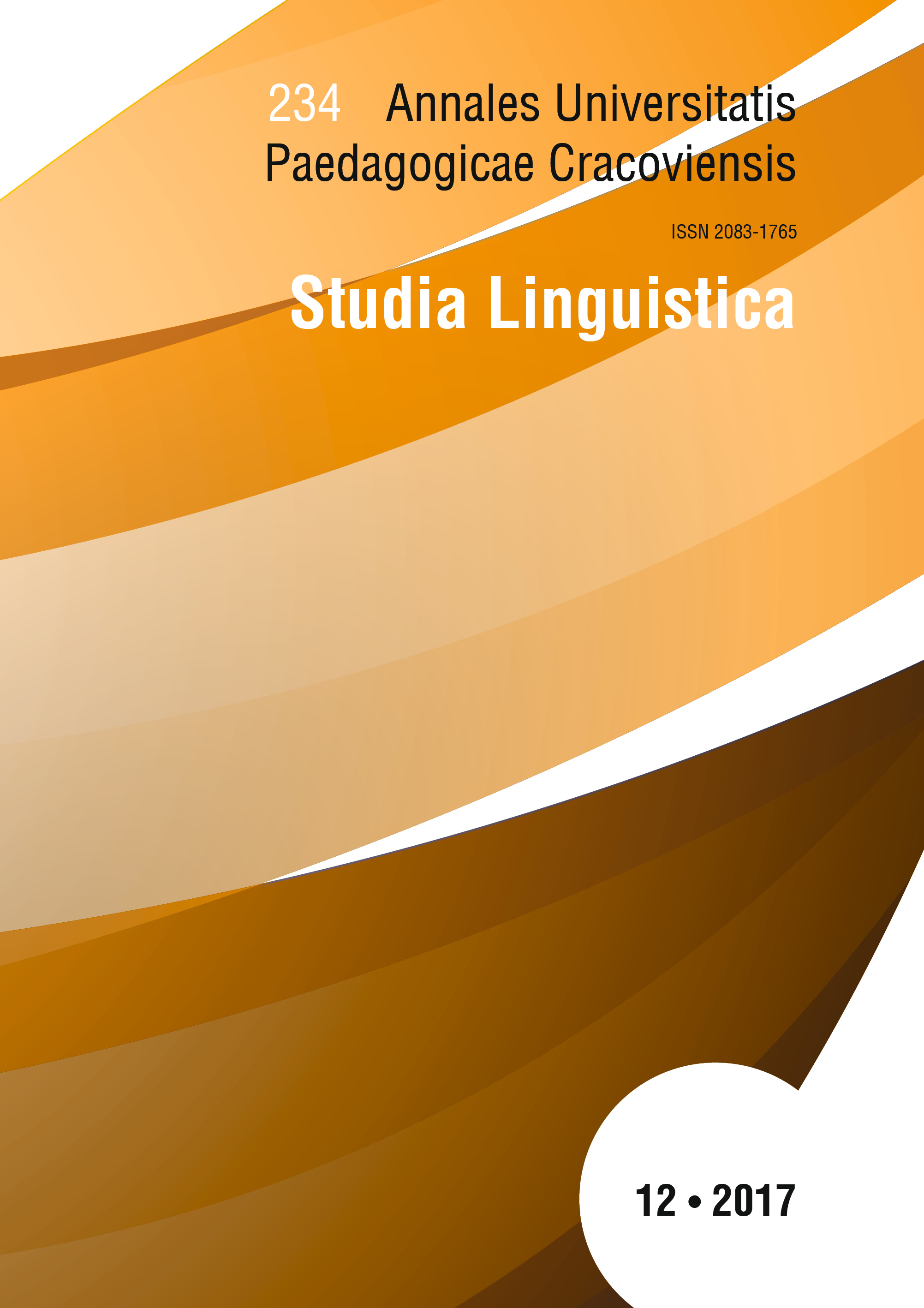Forgotten nomina acti with -ek (16th–18th century)
Main Article Content
Abstract
In the Old Polish and Middle Polish periods there existed deverbal nouns with the formant -ek, such nalazek, przepadek, spisek and others. Witold Doroszewski called them nomina acti. They are also found in Księgi gromadzkie wsi Kasina Wielka. Nowadays, the prefix-ek doesn’t serve this function.
Downloads
Article Details
Author, submitting a text to the editorial board of the journal “Annales Universitatis Paedagogicae Cracoviensis. Studia Linguistica", certifies that the content of the article has not been published so far and that the work does not violate in any way the copyright or related rights of other person, as well as other rights of third parties, and that no one's rights to the work (or any part thereof) have been missed. After signing the contract, the property rights to the published materials are transferred to the University of the National Education Commission, Krakow.
“Annales Universitatis Paedagogicae Cracoviensis. Studia Linguistica” is an open access journal, and all its content is made available free of charge to users and institutions under the Creative Commons CC-BY-NC-ND 4.0 license (attribution, non-commercial use, no derivative works). Under this license, the authors agree that their work may be lawfully reused for any purpose, except for commercial purposes, without the prior consent of the author or publisher. Everyone can read, download, copy, print, distribute and process these works, provided that the author's marking and the original publication place are correct. Published texts may not be used to create derivative works (e.g. to translate and publish in another language without the consent of the publisher). This is in line with the BOAI (Budapest Open Access Initiative) definition. "Studia Linguistica" does not charge for submitting or processing articles.
References
Doroszewski W., 1928, Formant -k- w rzędzie innych „determinantów imiennych”. Monografie słowotwórcze, ,,Prace Filologiczne”, t. XIII, s. 1–58.
Google Scholar
Gaertner H., 1938, Gramatyka współczesnego języka polskiego. Głosownia – Semantyka – Słowotwórstwo, Lwów–Warszawa.
Google Scholar
Grzegorczykowa R., 1979, Zarys słowotwórstwa polskiego. Słowotwórstwo opisowe, wyd. II poprawione, Warszawa.
Google Scholar
Grzegorczykowa R., Laskowski R., Wróbel H. (red.), 1984, Gramatyka współczesnego języka polskiego. Morfologia, Warszawa.
Google Scholar
Grzegorczykowa R., Puzynina J., 1979, Słowotwórstwo współczesnego języka polskiego. Rzeczowniki sufiksalne rodzime, Warszawa.
Google Scholar
Klemensiewicz Z., Lehr-Spławiński T., Urbańczyk S., 1955, Gramatyka historyczna języka polskiego, Warszawa.
Google Scholar
Kleszczowa K. (red.), 1996, Słowotwórstwo doby staropolskiej, Katowice.
Google Scholar
Kleszczowa K., 1998, Staropolskie kategorie słowotwórcze i ich perspektywiczna ewolucja, Katowice.
Google Scholar
Kobylińska J., 2013, Studia nad językiem Ksiąg gromadzkich wsi Kasina Wielka 1513– 1804, Kraków.
Google Scholar
Łoś J., 1925, Gramatyka polska, cz. II. Słowotwórstwo, Lwów–Warszawa–Kraków.
Google Scholar
Pastuchowa M., 1994, O pewnej funkcji sufiksu -ek w staropolszczyźnie, „Prace Językoznawcze” 22. „Studia Historycznojęzykowe”, red. A. Kowalska, Katowice, s. 78–84.
Google Scholar
